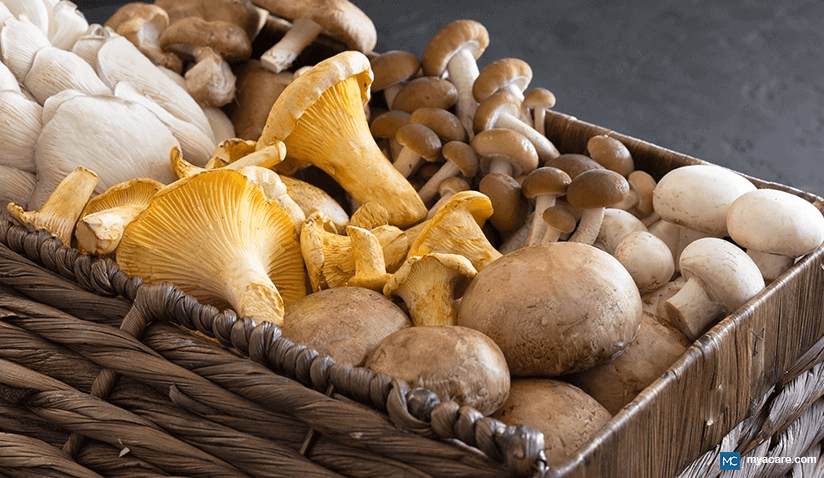3 Mushrooms Scientifically Proven to Boost Your Immune System

Are Lion’s Mane, Reishi, and Turkey Tail Mushrooms Backed By Scientific Research?
In the past 5 years, according to Google search trends, search volume for lion’s mane mushroom has more than tripled. Unfortunately, in a large amount of cases, what is popular is not always backed by science.
In this article, we will discuss the science behind 3 popular types of mushrooms, lion’s mane, reishi, and turkey tail mushrooms, and if the search trends are indeed warranted, or if they are another fad that can’t stand up to scientific scrutiny.
1. Lion’s Mane
The Lion’s Mane mushroom is a fuzzy-looking fungus touted with medicinal properties, specifically its ability to boost cognition [1], protect the brain and prevent diabetes [2]. But it’s true power lies in what it does to the immune system.
Thanks to its anti-inflammatory properties, Lion’s Mane produces a large number of antioxidants [3]. Inflammation, when excessive, can cause a host of medical issues like heart disease, stroke, and several autoimmune disorders like rheumatoid arthritis. Antioxidants like those found in lion’s mane have been proven to fight cancer effectively.
One study shows that Lion's Mane can stimulate the intestinal immune system, making it more active and more capable to fight disease [4]. Another study concluded that a protein in the Lion’s Mane mushroom can help gut bacteria to grow, resulting in ‘immune system soldiers’ being produced and strengthening the body’s defenses. [5]
2. Reishi Mushroom
Reishi is best known for its immune system properties. Research indicates that it may make natural killer cells more active, giving oncologists and cancer patients something to get excited about [6]. Natural killer cells are another variety of white blood cells and with highly active ones, your immune system is going to be more resilient.
Even though it’s been used as a medicine for thousands of years, we’re only beginning to take this mushroom’s effect on the human immune system seriously, but early research is promising. One study found that infection-fighting leukocytes could be enhanced by the reishi [7].
Not only does this fungi help to improve the function of white blood cells but, it’s also likely to increase their number. More white blood cells mean a greater capacity to fight harmful viruses, bacteria, and all the other pathogens on a path to destruction.
You don’t even need to be afflicted with some chronic illness to reap the benefits of this age-old remedy. In one study, researchers put athletes in strenuous situations and administered some reishi mushroom extract, the results showed that it may have many applications beyond the oncology and psychiatry wards [8]. The athletes showed enhanced immune function and resilience.
3.Turkey Tail
Nearly a decade ago, the FDA approved a trial to test turkey tail’s effectiveness against cancer. Today, we know it as a scientific fact that the immune system of cancer patients on chemotherapy benefits greatly from supplementing with turkey tail [9].
The Cancer Centre at the University of Minnesota in Minneapolis conducted a study on women who had breast tumors and had undergone chemotherapy. Since these patients have compromised immune systems, it was interesting to note a marked improvement in their immune response capabilities [10]. Not only that, but it soon became apparent that the mushroom can be used safely to complement radiotherapy.
Eating turkey tail mushrooms can also promote those natural killer cells we mentioned earlier, making it easier to target cells infected by viruses [11]. What makes this mushroom even more special is the fact that it excretes powerful antiviral compounds which fight HPV, hepatitis C, and cervical cancer [12].
Turkey tail mushrooms have been found to contain a compound called polysaccharopeptide (PSP). PSP has shown great promise in being able to activate the immune system, especially when used in conjunction with other therapies [13].
One clinical trial shows that this PSP compound in the turkey tail can be ingested by bacteria in the gut, helping maintain a good bacterial population. To add to that, this PSP actually helps the microbiome in the gut to keep a good ratio of good bacteria [14].
To learn more about the immune system and how it functions, talk to a doctor. To search for the best doctors and healthcare providers worldwide, please use the Mya Care search engine.
Sources:
Featured Blogs



